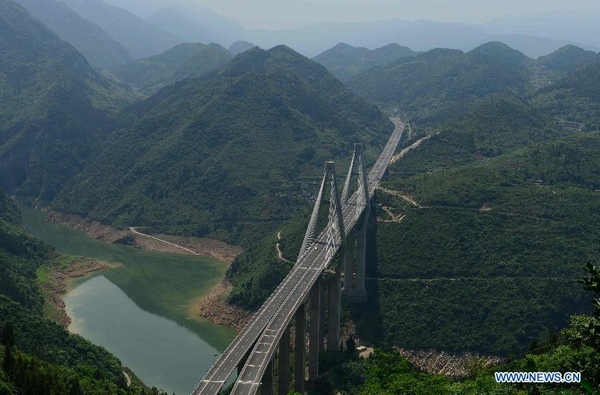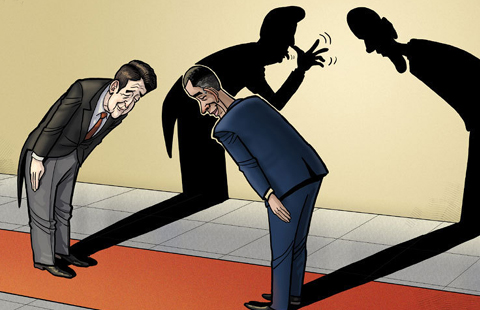Transparency of toll charges key to reform of the system
(China Daily) Updated: 2015-01-19 07:56
 |
|
Photo taken on June 1, 2014 shows a segment of the Shanghai-Chengdu Expressway in Badong County of Enshi, central China's Hubei Province. The 1,966-kilometer Shanghai-Chengdu Expressway was put into full operation on Dec. 27, 2014, linking Shanghai Municipality, Jiangsu and Anhui provinces in east China, Hubei Province in central China, Chongqing Municipality and Sichuan Province in southwest China. (Xinhua/Yang Shunpei) |
Never has the toll-charging system been so contentious in China, although the country had 100,000 kilometers of expressways by the end of 2013, the longest in the world. Statistics from the Ministry of Transport released by the end of 2014 show that the deficit of all expressways that charge tolls was 66.1 billion yuan ($10.8 billion) in 2013. Yet many people think it impossible for them not to make a profit.
The ministry revealed last week that the toll-charge system on expressways will be further reformed. But apart from some general content such as the separation between the income and expenditure of toll-charging systems, we know little about how the reform will be carried out.
What we do know is the poor management of the system and the need for greater transparency.
For instance, how many employees do all the toll stations in the country have and how many employees should they have according to their work needs? The auditing of a toll station in 2008 found that one that should have had 30 employees had more than 140 employees on the pay roll.
Auditing of the toll charge system has also found that some of the money collected has been misappropriated for the construction of hotels and office buildings.
There is no problem with charging tolls, which can then be used to repay the loans that were used for the construction of the expressways. Neither is it problematic for the charged money to go to their maintenance. There is no denying that the toll charge system has contributed a great deal to the rapid increase in the country's mileage of expressways.
What makes people angry is that much of the charges are being misappropriated for purposes they are not intended for and that they are paying for the charges indirectly as well as directly. It has been reported the heavy tolls charged on expressways make up at least one-third of the cost of transportation. These costs are then passed on to consumers.
It is far from enough for the Ministry of Transportation to release statistics about how much money all the toll stations have charged a year and how much money has been spent in repaying the loans. People want to know details of where the money is going.
Will the reform increase the transparency of toll charge system and help straighten out the whole system? Let's wait and see.











